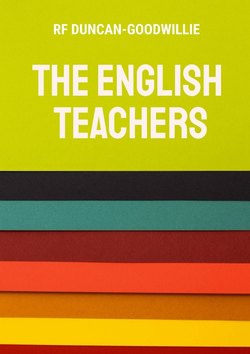Читать книгу The English Teachers - RF Duncan-Goodwillie - Страница 19
2
“Where do you come from?” – Teacher Backgrounds
Luka Miksic (LM)
ОглавлениеSetting the scene: It’s spring in Kurdistan and I’ve taken two planes, crossed four borders and finally an entertaining 120 kilometre per hour ride in a taxi through the surprisingly flat Kurdish countryside to be here. Outside the air-conditioned, modern university building with its polished marble floors and well-stocked dinner hall is an unassuming valley city, flanked on either side by steep, rocky hills and mountains.
Luka and I sit in an office cubicle. We are interrupted several times by students asking him about their exam results. Although this is rather annoying, I appreciate they are paying for the privilege of studying here whereas I’m just paying for the beer later. Luka speaks quickly with a slight Eastern European accent I would find difficult to place if I didn’t know where he is from. To protect his identity, he only speaks of his time in Moscow.
LM: I did a Masters in Journalism, then I worked as a receptionist for several summer sessions before travelling to Japan where I got the idea of becoming an English teacher when I met other teachers. I did my CELTA after that and 10 months later I came to Russia and worked there for a year.
RFDG: Why did you choose teaching?
LM: Initially it was about having the ability to move abroad and travel. Honestly, I didn’t care about teaching that much. It was a means to an end, but since then I’ve grown to quite like it.
RFDG: Why did you choose Moscow?
LM: There were jobs and it was culturally different from the rest of Europe, which was what I was after when I was looking for a place to live. It was an interesting place and the job was alright for an inexperienced teacher like myself.
RFDG: What do you mean when you say Russia is “culturally different”?
LM: It’s hard to describe. Moscow has a different atmosphere. It’s not as Western. I don’t know how to describe it. It’s neither positive nor negative. It’s just particular in its own way. The way people treat other people and society in general. That’s quite useless, isn’t it?
He chuckles a little.
RFDG: What do you mean about the “way people treat other people”?
LM: They have a certain demeanour in Russia which is hard to describe. They are more reserved in a way, but at the same time they are not as reserved as I would say Western Europeans in some cases. And once you break through the ice they are usually really warm and kind people. It’s just that when you don’t know them they can often seem very unkind and rude. I’m generalising, of course, but that’s kind of general vibe I got there.
RFDG: And you still chose to work there despite that?
LM: Yeah.
RFDG: Some people would say that’s unusual.
LM: Why?
RFDG: Because it could be interpreted as a hostile environment.
LM: It wasn’t hostile. It’s weird at first, but as I said it just seems that way until you break the ice.
RFDG: How did you go about doing that?
LM: Trying to speak Russian. Speak a few words of Russian and they just like you 500 times more.
RFDG: If you hadn’t become a teacher what would you have done?
LM: I have no clue.
RFDG: What would you like to have done?
LM: Maybe I would have stayed in the hospitality industry because the high school I went to was a vocational high school for that kind of work.
We hear a knock on the door. Another student has appeared for advice, providing a perfect ending to the first section of our interview.
*
